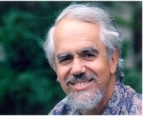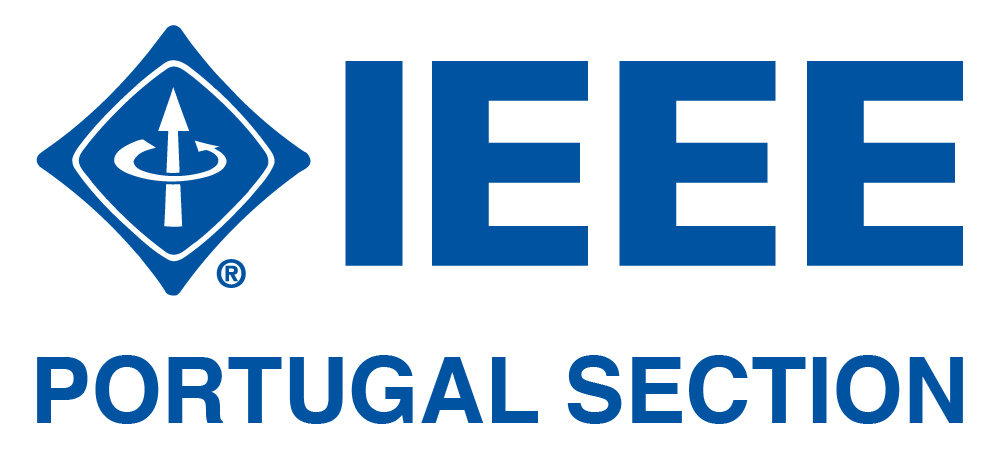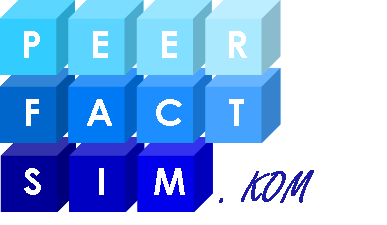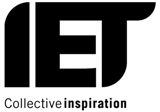Programme - in PDF
|
Monday 22 June 2009 |
||
|
08:30 |
Bus from Tivoli Hotel to FMN Venue |
|
|
08:30-09:00 |
Registration |
|
|
09:00-09:15 |
Opening |
|
|
9:15-10:15 |
Keynote Talk 1 Would Collaborative Virtual Environments, Tele-Haptics and Ambient Intelligence Applications Significantly Impact Network Traffic? Prof. Nicolas D. Georganas Distinguished University Professor of the University of Ottawa, Canada Chair of Excellence of the University Carlos III of Madrid, Spain |
|
|
10:15 - 10:45 |
Coffee Break |
|
|
10:45 - 12:45 |
Session 1: Streaming and Voice Services in Future Multimedia Networks Chair: Thomas Plagemann, University of Oslo, NO |
|
|
Enhancing TFRC for video streaming by agnostically using applicative cross layer semantics and measure Mathieu Gineste (Laas-CNRS, FR), Nicolas Van Wambeke (Laas-CNRS, FR), Ernesto Exposito (Laas-CNRS, FR) ILPS: a scalable multiple description coding scheme for H.264 Lorenzo Favalli (University of Pavia, IT), Marco Folli (University of Pavia, IT) Arrival Process-Controlled Adaptive Media Playout for Video Streaming Mingfu Li (Chang Gung University, TW), Shih-Han Cheng (Chang Gung University, TW) A Multicast-Based Enterprise VoIP Service Architecture: MEVA Mohamed Boucadair (France Telecom R&D, FR) |
||
|
12:45 - 14:15 |
Lunch |
|
|
14:15 - 16:15
|
Session 2: Wireless & ad-hoc Networks in Autonomic Content Networking Chair: Paulo Simões, University of Coimbra, PT |
|
|
A Scalable Provisioning and Routing Scheme for Multimedia QoS over Ad hoc Networks Rashid Mehmood (Swansea University, UK), Raad Alturki (Swansea University, UK), Muhammad Faisal (COMSATS Institute of Information Technology, PK) Distributed Information Forwarding Using Delay Function in Wireless Mobile Networks Wonjong Noh (University of California, USA) A Seamless Mobility Scenario for IP over WiMAX Vitor Bernardo (University of Coimbra, PT), Luis Cordeiro (University of Coimbra, PT), Isidro Caramelo (University of Coimbra, PT), Bruno Sousa (University of Coimbra, PT), Marília Curado (University of Coimbra, PT), Edmundo Monteiro (University of Coimbra, PT) Performance Evaluation of The Split Transmission in Multihop Wireless Networks Wanqing Tu (Glyndwr University, UK), Vic Grout (Glyndwr University, UK) |
||
|
16:15 - 16:45 |
Coffee Break |
|
|
16:45 - 17:30
|
Poster/Demo Session: Demonstrations on Future Multimedia Networking Chair: Mikolaj Leszczuk, AGH University of Science and Technology, PL |
|
|
Speaker Veri Changwoo Seo (Soongsil University, KR), Keunho Sim (Soongsil University, KR), EunYoung Kim (Soongsil University, KR), Heeae Ko (Soongsil University, KR), Yonghwan Lim (Soongsil University, KR) A Data Model for Content Modelling of Temporal Media Behrang Qasemizadeh (Queen's University Belfast, UK), Ian O'Neil (Queen's University Belfast, UK), Philip Hanna (Queen's University Belfast, UK), Darryl Stewart (Queen's University Belfast, UK) The design of a low-cost WAN simulator Kevin Schmidt (Texas A&M University, USA), Joe Cerney (Texas A&M University, USA), Ryan Becker (Texas A&M University, USA), Patrick Duffy (Texas A&M University, USA); Ana Goulart (Texas A&M University, USA) Demonstrating Autonomic On-Demand Content Delivery Daniel Rodríguez-Fernández (University of Oslo, NO), Karl-André Skevik (University of Oslo, NO), Vera Goebel (University of Oslo, NO), Thomas Plagemann (University of Oslo, NO) A Real-Time End-To-End Testbed for Evaluating the Performance of Multimedia Services Gerardo Gomez (University of Málaga, ES), Javier Poncela González (University of Malaga, ES), Mari Carmen Aguayo-Torres (University of Malaga, ES), J. Tomás Entrambasaguas (Universidad de Málaga, ES) Meetecho: A Standard Multimedia Conferencing Architecture Alessandro Amirante (University of Napoli Federico II, IT), Tobia Castaldi (University of Napoli Federico II, IT), Lorenzo Miniero (University of Napoli Federico II, IT), Simon Pietro Romano (University of Napoli Federico II, IT) Portable Device-Centric Streaming Service Jin-Hwan Jeong (ETRI, KR), Hag-Young Kim (ETRI, KR), Eunah Kim (ETRI, KR) Allocation of Multiple Advertisement on Limited Space: Heuristic Approach Adam Wojciechowski (Poznan University of Technology, PL), Dariusz Kapral (Poznan University of Technology, PL) Performance evaluations of a QoE-based multipath video streaming mechanism over Video Distribution Network (VDN) Majd Ghareeb (INRIA, FR), Cesar Viho (INRIA, FR) Video Artifacts Assessment for Live Mobile Streaming Applications Eduardo Cerqueira (University of Coimbra, PT), Lucjan Janowski (AGH University of Science and Technology, PL), Mikolaj Leszczuk (AGH University of Science and Technology, PL), Zdzislaw Papir (AGH University of Science and Technology, PL), Piotr Romaniak (AGH University of Science and Technology, PL) H.264 Rate-Distortion Analysis using subjective quality metric Luís Teixeira (Universidade Catolica Portuguesa, PT), Luís Corte-Real (INESC Porto, PT) OASIS Archive - Open Archiving System with Internet Sharing Juergen Enge (University of Applied Sciences and Arts, CH), Andrzej Glowacz (AGH University of Science and Technology, PL), Michał Grega (AGH University of Science and Technology, PL), Mikolaj Leszczuk (AGH University of Science and Technology, PL), Zdzislaw Papir (AGH University of Science and Technology, PL), Piotr Romaniak (AGH University of Science and Technology, PL), Viliam Simko (CIANT International Centre for Art and New Technologies, CZ) |
||
|
17:30 |
Bus to Tivoli Hotel |
|
|
19:00 |
Gala Dinner – The Basófias. |
|
|
Tuesday 23 June 2009 |
||
|
08:30 |
Bus from Tivoli Hotel to FMN Venue |
|
|
08:30-09:00 |
Registration |
|
|
09:00-10:00 |
Keynote Talk 2 Future Multimedia Communication over the Internet: Issues, Challenges and Opportunities of Peer-to-Peer Mechanisms Prof. Dr.-Ing. Ralf Steinmetz Technical University of Darmstadt – DE |
|
|
10:00 - 10:30 |
Coffee Break |
|
|
10:30 - 12:30 |
Session 3: Group and Multiparty Services in Autonomic Content Networks Chair: Vera Goebel, University of Oslo, NO |
|
|
Employing Data driven Random Membership Subset Algorithm for QoS-Aware Peer-to-Peer Streaming YongXiang Huang (Xi'An JiaoTong University, CN), Qian Depei (Xi'An JiaoTong University, CN), Wu Weiguo (Xi'An JiaoTong University, CN), Zhao Haixiang (Xi'An JiaoTong University, CN) OASIS: An Overlay Abstraction for Re-Architecting Large Scale Matthias Wählisch (FU Berlin, HAW Hamburg & link-lab, DE), Thomas Schmidt (HAW Hamburg (DE), DE), Georg Wittenburg (Freie Universität Berlin, DE) Interest-based Peer-to-Peer Group Management Jun Lei (University of Goettingen, DE), Xiaoming Fu (University of Goettingen, DE) Multiparty Session and Network Resource Control in the Context Casting (C-CAST) Project Augusto Neto (Institute of Telecommunications of Aveiro, PT), Susana Sargento (Instituto de Telecomunicações, Universidade de Aveiro, PT), Evariste Logota (University of Aveiro PT), Josephina Antoniou (University of Cyprus, CY), Filipe Cabral (PT Inovação, PT) |
|
|
|
12:30 - 14:00 |
Lunch |
|
|
14:00 - 16:00
|
Session 4: Quality in Video and Internet Services Chair: Carmen Guerrero, University Carlos III Madrid, ES |
|
|
Realization of Free Viewpoint TV based on improved MVC Ruixing Yang (Technology University of Tampere, FI), Lachlan Pockett (Technology University of Tampere, FI), Jari Nurmi (Technology University of Tampere, FI) A non-intrusive estimation for high-quality Internet TV services Alberto Fraga (University of Oviedo, ES), Xabiel Garcia Pañeda (University of Oviedo, ES), Roberto Garcia (University of Oviedo, ES), David Melendi (University of Oviedo, ES), Sergio Cabrero (University of Oviedo, ES) A Mathematical Model for Evaluating the Perceptual Quality of Video Jose Joskowicz (University of Vigo, UY),; José-Carlos Lopez-Ardao (University of Vigo, ES), Miguel González-Ortega (University of Vigo, ES), Cándido López Garcia Ardao (University of Vigo, ES) Effect of the Multiple Description Coding over a Hybrid Fixed-AdHoc Video Distribution Network Patricia Acelas (Universidad Politecnica Valencia, ES); Pau Arce Vila (Universidad de Valencia, ES); Juan C. Guerri (Universidad Politecnica Valencia, ES) |
|
|
|
16:00 - 16:30 |
Coffee Break |
|
|
16:30 - 17:30
|
Expert Panel with Luis Alveirinho (MEO Portugal, PT), Nicolaos Laoutaris, (Telfonica Research, ES), Nicolas Georganas (University of Ottawa, CA) and Thomas Plagemann (University of Oslo, NO) |
|
|
Is the Future Internet the Content Distribution Platform of the Future? |
|
|
|
17:30 |
Bus to University of Coimbra or Tivoli Hotel |
|
|
18:00 |
Guided tour: University of Coimbra |
|
FMN 2009 Keynotes
|
|
Would Collaborative Virtual Environments, Tele-Haptics and Ambient Intelligence Applications Significantly Impact Network Traffic? Prof. Nicolas D. Georganas Distinguished University Professor of the University of Ottawa, Canada Chair of Excellence of the University Carlos III of Madrid, Spain |
Abstract
Multimedia Communications, Virtual Environments, Haptics and Gestural Interfaces have been in the forefront of Information Technology for a few years now, but only recently have seen numerous applications in many fields. This presentation will give an introduction to the field of Distributed and Collaborative Hapto-Virtual Environments, with applications in Industrial Training, Medical Education and e-Learning, The impact of these new digital media on future networking will be assessed.
Nicolas D. Georganas Biography
Nicolas D. Georganas is Distinguished University Professor, University of Ottawa and, currently on sabbatical leave, holds a Chair of Excellence- Univ. Carlos III de Madrid, and is a visiting researcher at the Institute IMDEA Networks, Madrid, Spain. He received the Dipl.Ing. degree in Electrical Engineering from the National Technical University of Athens (NTUA), Greece, in 1966 and the Ph.D. in Electrical Engineering ( Summa cum Laude ) from the University of Ottawa in 1970. He received Honorary Dr.-Ing. Degrees from the Tech. University of Darmstadt, Germany in 2004 and NTUA, Greece, in 2007. He was Dean of Engineering (1986-93) and Associate Vice-President Research (2005-08) at the University of Ottawa. He has supervised over 110 graduate students, 40 postdocs and research engineers, raised over $62 million of research money and published over 450 papers.
He is Editor-in-Chief of the ACM Trans. on Multimedia Computing, Communications and Applications, Life Fellow of IEEE, Fellow of the Canadian Academy of Engineering, Secretary and Fellow of the Academy of Science (Royal Society of Canada) and Fellow of the Engineering Institute of Canada. He is a Laureate of the 2002 Killam Prize for Engineering, Canada’s highest award for career achievements in research, and an Officer of the Order of Canada, the highest recognition for a Canadian.
|
|
Future Multimedia Communication over the Internet: Issues, Challenges a nd Opportunities of Peer-to-Peer Mechanisms
Prof. Dr.-Ing. Ralf Steinmetz Technical University of Darmstadt - DE |
Abstract
The decentralization of Internet communication is an increasing trend during the last years. We witnessed the boom peer-to-peer communication paradigm brought in content delivery networks such as KaZaA and BitTorrent, in VoIP applications such as Skype, and video streaming applications such as Joost, Zattoo, and PPLive. The peer-to-peer paradigm led to an increase of interaction between users for decreased costs as these systems are build on an infrastructure in which users consume and provide services at the same time. Also, there is a rising need for users to easily communicate, collaborate and share their user-generated content over the Internet.
However, there are many issues and challenges applying to the peer-to-peer paradigm. On the one side, peer-to-peer systems rely on cooperation among self-interested users. For example, users of file-sharing systems who do not share their own resources cause long delays or download failures. When non-cooperative users benefit from free-riding on others’ resources, the “tragedy of the commons” is inevitable. Avoiding this problem requires incentives for cooperation. On the other side, talking about QoS in decentralized autonomous (peer-to-peer) systems brings a challenge for a self-optimization not only on peer-level, but also on system-level. The distributed, self-organizing Efficiency and Information Management System (EMS) SkyEye.KOM brings an ‘oracle view’ on peer-to-peer systems. It collects and aggregates information about system components; information that can be used for analyzing and forecasting the system status using mathematical models. Finally, with the booming of peer-to-peer content delivery, Internet service providers (ISPs) are under tremendous pressure to carry peer-to-peer traffic. For example, since content providers use peer-to-peer technologies such as BitTorrent to efficiently replicate bulk data over the Internet, their costs are being passed onto the ISPs. To reduce the traffic on the backbone of the Internet and the operation costs of ISPs, it is of paramount importance to develop ISP friendly peer-to-peer solutions.
Research in the field urges addressing quality properties of peer-to-peer systems. The project QuaP2P focuses on the systematic improvement of the adaptability, efficiency, validity and security of peer-to-peer systems. As a proof of concept, all developed mechanisms and findings are integrated in two new peer-to-peer application areas - a first response system and a collaborative software development environment showing new opportunities of the peer-to-peer paradigm.
Ralf Steinmetz Biography
Prof. Ralf Steinmetz worked for over nine years in industrial research and development of distributed multimedia systems and applications. He has been head, since 1996, of the Multimedia Communications lab at Darmstadt University of Technology, Germany.
From 1997 to 2001 he directed the Fraunhofer (former GMD) Integrated Publishing Systems Institute IPSI in Darmstadt. In 1999 he founded the Hessian Telemedia Technology Competence Center (httc e.V.). His thematic focus in research and teaching is on multimedia communications with his vision of real "seamless multimedia communications". With over 200 refereed publications he has become ICCC Governor in 1999; was awarded the ranking of Fellow of both, the IEEE in 1999 and the ACM in 2002. Professor Dr. Ralf Steinmetz is a member of the Scientific Council and president of the Board of Trustees of the international research institute IMDEA Networks.










 webdesign by
webdesign by